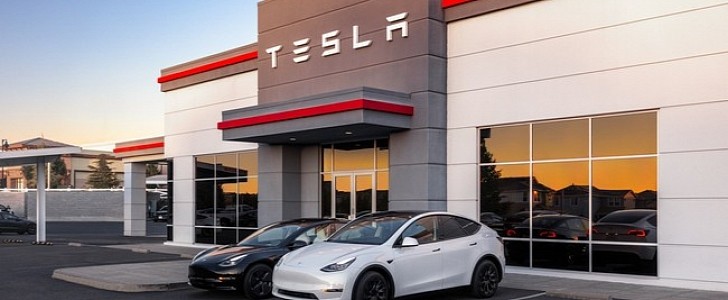Electric automobile manufacturers' biggest long-term concern right now revolves around getting a better grip on their supply chain for the batteries that power their vehicles. Logistics and geo-political issues have made this a monumental challenge so, automakers are having to adapt to keep their EV goals in sight.
Tesla is one automaker that continues to be ahead of the game. While other automakers are forming partnerships to strengthen their supply chain, Tesla is looking to become a lithium refiner and here is why.
It is common knowledge that electric cars are powered by rechargeable batteries and those batteries contain a variety of earthy metals. One of the main metals is lithium, refined from lithium ore. According to the U.S. Department of Energy, the average EV battery contains 8 kilograms (17.63 lbs) of lithium, making up a significant portion of a batteries metal content.
The majority of the world's lithium ore-rich land is in South America in an area known as the 'Lithium Triangle,' made up of Chile, Bolivia, and Argentina. Last year, this area produced approximately 85% world's lithium. That does not tell the whole story.
It is thought that China controls 85% of the world's lithium refining capacity, either through government-sponsored companies or partnerships with producers around the world.
Elon Musk realizes that in order to stay ahead of increasing competition in the EV marketplace, stabilize lithium prices, and guarantee a steady stream of the critical battery element, Tesla may have to get into the mining and refining of the metal.
As a result, the company filed an application to construct a battery-grade lithium hydroxide facility with the state of Texas' Comptrollers Office, on August 22, according to Reuters. If permits are granted, Tesla could break ground before the end of this year and be in production by the end of 2024.
It is common knowledge that electric cars are powered by rechargeable batteries and those batteries contain a variety of earthy metals. One of the main metals is lithium, refined from lithium ore. According to the U.S. Department of Energy, the average EV battery contains 8 kilograms (17.63 lbs) of lithium, making up a significant portion of a batteries metal content.
The majority of the world's lithium ore-rich land is in South America in an area known as the 'Lithium Triangle,' made up of Chile, Bolivia, and Argentina. Last year, this area produced approximately 85% world's lithium. That does not tell the whole story.
It is thought that China controls 85% of the world's lithium refining capacity, either through government-sponsored companies or partnerships with producers around the world.
Elon Musk realizes that in order to stay ahead of increasing competition in the EV marketplace, stabilize lithium prices, and guarantee a steady stream of the critical battery element, Tesla may have to get into the mining and refining of the metal.
As a result, the company filed an application to construct a battery-grade lithium hydroxide facility with the state of Texas' Comptrollers Office, on August 22, according to Reuters. If permits are granted, Tesla could break ground before the end of this year and be in production by the end of 2024.





